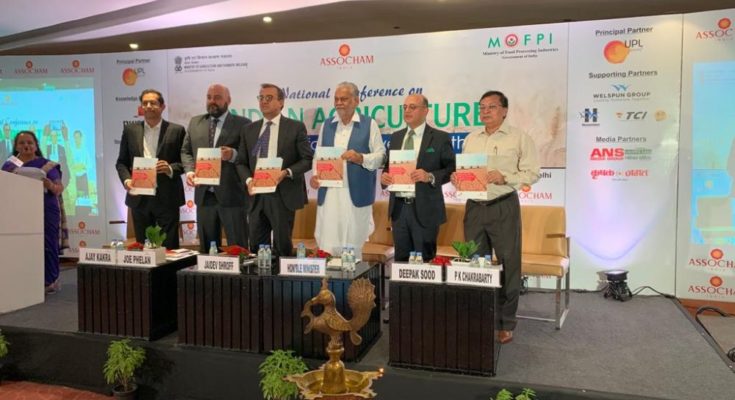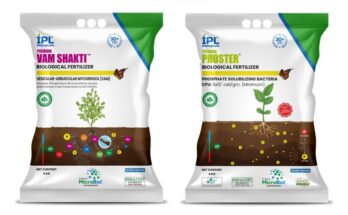Bills to check spurious seeds and pesticides management are expected to be tabled in the coming session of Parliament, Minister of State for Agriculture and Farmers’ Welfare, Parshottam Rupala said at an ASSOCHAM Conference in New Delhi today.
“We are pursuing both the Bills, on pesticides management and on seeds. I am hopeful that these would be finalised in the next session (of Parliament),” Rupala said, addressing the ASSOCHAM National Conference on Indian Agriculture ‘Agenda for Inclusive Growth’.
He said the government is seriously pursuing these issues in all earnest as in the absence of proper policies and regulations; the country has to face menace of spurious seeds and pesticides. In fact, India has a great potential to emerge as a major exporter of seeds for the world agriculture sector, he said.
Referring to the new global opportunities in food and agriculture sector, Rupala further said the demand for organic food is witnessing an exponential increase amidst a big craze. “In the overseas restaurants, every table is not only segregated in terms of vegetarian or non-vegetarian but also organic or non-organic. Moreover, a system of proper tagging is catching up, whereby it must be clearly mentioned as to where from and which farm the food items have been sourced”.
All these throw open a big opportunity for the Indian entrepreneurs in the agriculture sector, which must be taken to the global market in a bigger way through organic food.
Increasing vegetable oilseeds to reduce dependence on import is yet another opportunity in the farm sector along with involvement of entrepreneurs in food processing and value-addition. “A country like Vietnam sources un-processed food products from India, value-adds and then export to the world market”.
He said the Ministry of Food Processing is extending liberal benefits to the entrepreneurs in value addition, which holds a big promise.
Dr. PK Chakrabarty, Member ASRB said, “With 11 percent of total global agriculture, India today ranks second in the world agriculture production as leading producer of several commodities including food grains, cotton, horticulture produce, dairy and poultry aquaculture and spices. Agriculture production in 2017 was valued at US$401 billion that is more than 70 percent of US$279 billion.”
Even India’s trade in agriculture sector fetches more revenue than services and manufacturing sector that ranks 11-12 percent. India’s agriculture GDP increased at a remarkably higher growth rate of 350 percent during the last 16 years compared to erstwhile period of 30 years, said Dr. Chakrabarty.
Jaidev Shroff, Chairman, ASSOCHAM’s Council on Agri Inputs and Farming Practices & CEO, UPL Global said, there is a need to increase awareness about technology adoption in efficient water management, and reducing food wastage across the value chain. India must also harness its production capacities to generate more export-oriented produce. It is necessary to complement the structural changes required in the agriculture sector in India with policy re-orientation and re-alignment.
Deepak Sood, Secretary General, ASSOCHAM also mentioned that there is a growing impetus to create a policy environment that support all agricultural value chain stakeholders and to push for sustainable agriculture growth. While several policies and schemes are in place in the agriculture sector, it remains necessary to identify key gaps that are hindering large scale implementation with maximum impact.
Speaking on the launch of PwC’s paper on ‘Sowing the policy seeds of a flourishing agriculture sector’, Ajay Kakra, Leader – Food and Agriculture, PwC India said, “Indian agricultural economy is undergoing a much needed transformation. The government is focussing on doubling farmers’ income, developing market linkages, ensuring quality and timely input supply, promoting investments and adopting emerging technologies. However, there’s lots to be done to ensure that the agricultural ecosystem is fit-for-future. One needs to look at the development of the allied industries like exports, agricultural finance, farm mechanisation and irrigation, food processing and storage to ensure a sustainable development of the sector. There is a strong need to link small holder farmers directly to market and facilitate inter market connectivity.”
Bills to check spurious seeds, pesticide management soon: MoS Agriculture

We are pursuing both the Bills, on pesticides management and on seeds, says MoS Agriculture




